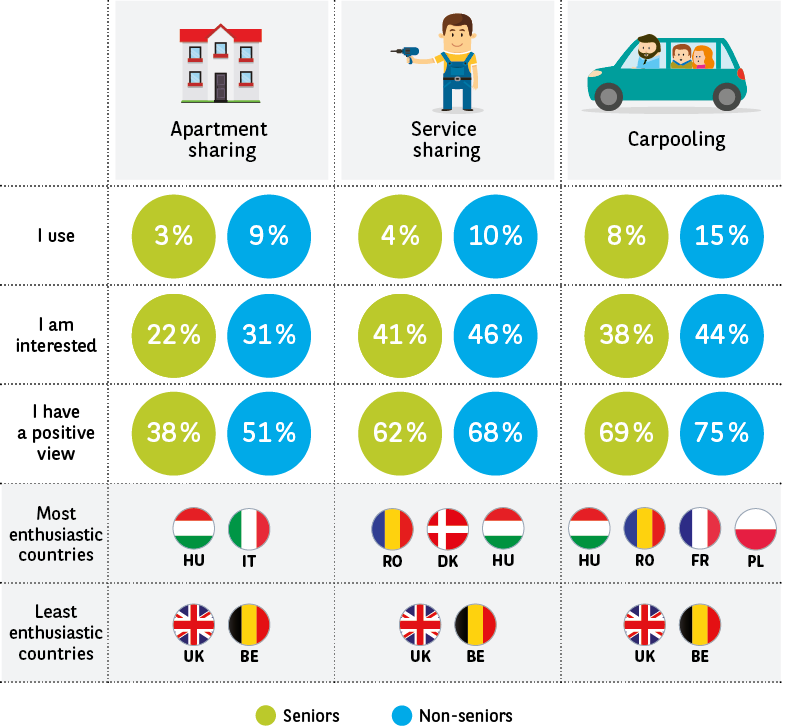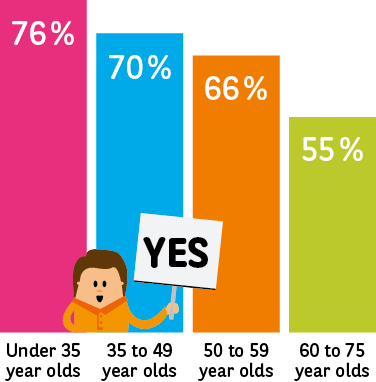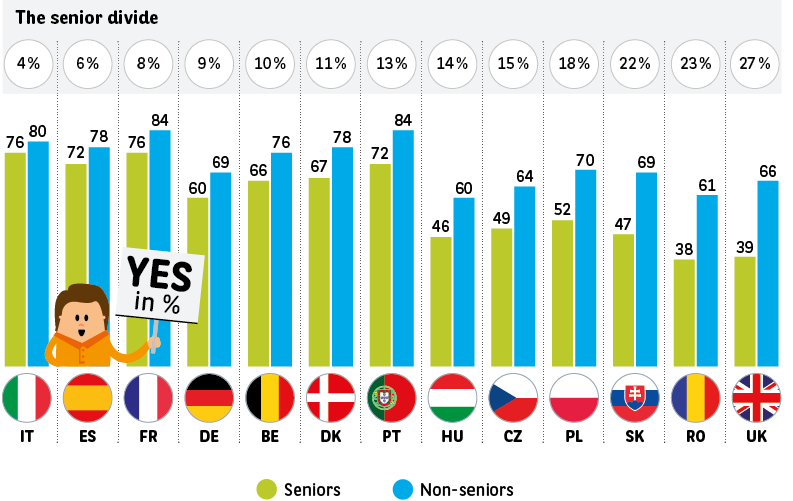THE COLLABORATIVE ECONOMY CAN GAIN GROUND


A car is for sharing!
Carpooling, which is great for those who like to chat, and apartment sharing, which is often simply about exchanging keys, are viewed very differently among seniors (Fig. 30). While 38 % are interested in the former, almost half as many see the appeal of the latter (22 %).
Carpooling is the sharing economy’s most widespread practice in terms of the number of users, although just 8 % of European seniors say they have previously tried it (vs. 15 % of their juniors). Financial savings are not the primary driver of this shared mobility, given that high earners are overrepresented among seniors who carpool. The practice also has a female bias, with women representing almost 60 % of carpool users. In France, where organised carpooling first took off, 15 % of the seniors surveyed for L’Observatoire Cetelem say they have used it in the past.
Fig. 30 Do you have a positive view of these practices? Do you use them? Would you be interested? Select one answer only
Source: L’Observatoire Cetelem de la Consommation 2016.
A big yes to the new economy
Much like car sharing, the collaborative economy is viewed positively by almost two-thirds of Europe’s seniors. But while service sharing between private individuals seems popular (62 % respond positively), this is less true for apartment sharing (62 % respond negatively). Indeed, this is a service that requires providers to allow strangers into the intimacy of their home. But are seniors ready to do so? Not yet, or so they tell us.
Over 60s seem less keen on consumer services based on collaboration and sharing than younger age groups (Fig. 31). 55 % have a positive opinion of existing services of this type, compared with 76 % of under 35s, for example. These new models are therefore still subject to generational trends, although it should be noted that some over 60s do choose to take advantage of them.
Fig. 31 Do you have a very or somewhat positive opinion of the collaborative and sharing economy?
Source: L’Observatoire Cetelem de la Consommation 2016.
An East-West divide
The countries of the South (Spain, France, Italy and Portugal) have a much more positive opinion of the collaborative and sharing economy than the European average (Fig. 32). These are the countries in which the differences between seniors and younger generations are the smallest, bearing witness to the widespread, wholesale and cross-generational adoption of these new consumer habits. Conversely, only 50 % express a positive view of these practices in the United Kingdom and in the countries of Central and Eastern Europe, although they are fairly popular in Hungary and Romania.
Fig. 32 Do you have a very or somewhat positive opinion of the collaborative and sharing economy?
Source: L’Observatoire Cetelem de la Consommation 2016.



